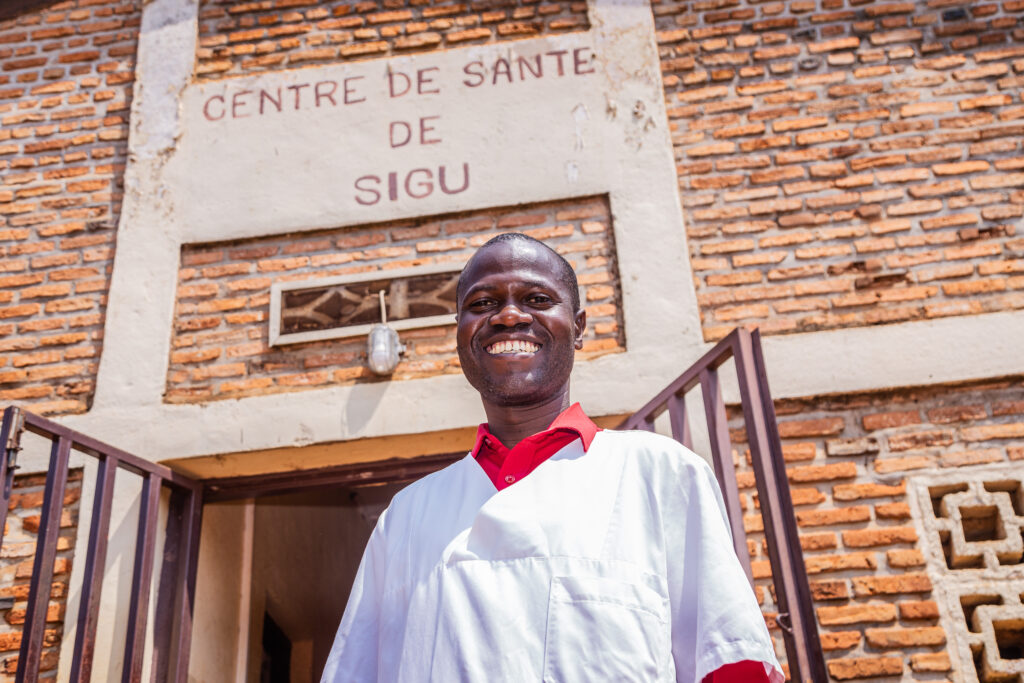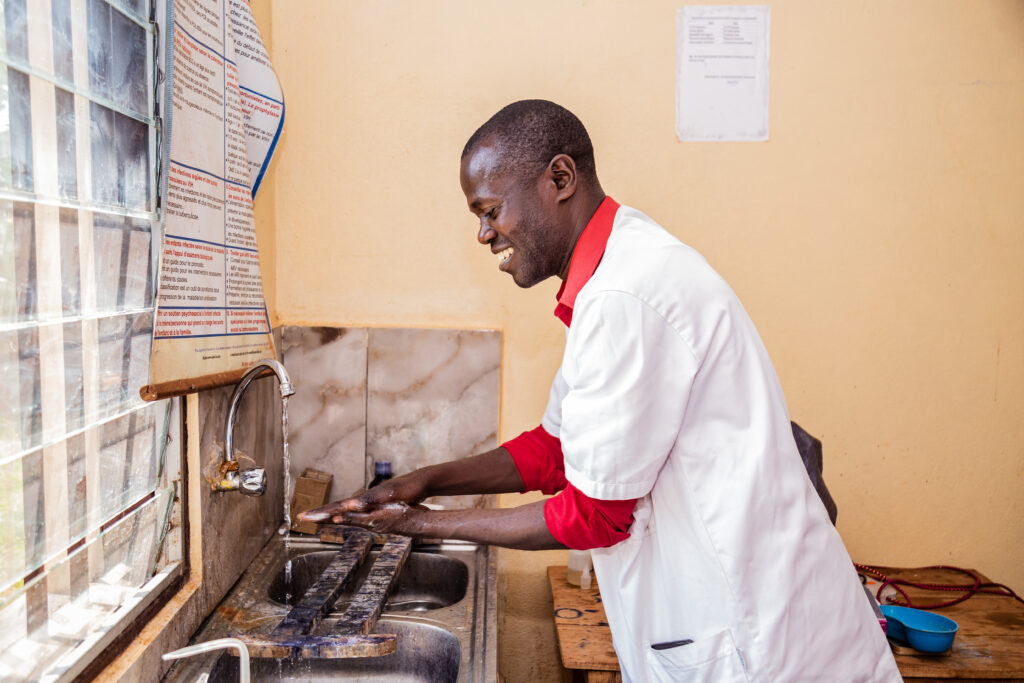Hand hygiene is a cost-effective way to ward off infectious diseases, prevent deaths and prepare for future pandemics. Access to potable water is a key ingredient in public health and a no regrets investment.

JEAN CLAUDE SERWENDA is Doctor in charge of the SIGU health center in northern Burundi. Photo: Fairpicture/Fabrice Mbonankira
Jean-Claude Serwenda has been the doctor in charge since September 2020 at the Sigu health center, 41, married and father of a 7-year-old girl. Before the arrival of the Foundation’s water project in his locality, many diseases were observed linked to the use of non-potable water.
According to Jean-Claude, women suffer miscarriages in his locality, mainly due to lack of hygiene caused by the use of non-potable water. His own wife also had 2 miscarriages before the arrival of her daughter.
One of Jean-Claude’s patients, an 18-year-old married woman also had a miscarriage during her first pregnancy.
“She used the lake water daily for all the daily water needs of the matrimonial home and got sick, she ended up losing her baby, “ the doctor explains .
Today, she is pregnant again, she no longer has any problem obtaining drinking water from the water kiosk which is located a few meters from her home.
Since the birth of the water project, the inhabitants of the locality of SIGU have been delighted, especially the SIGU Health Center. Emmanuel Ntamugabumwe , laboratory doctor testifies:
“I need potable water to do my job. It was very difficult and very expensive for the center to obtain drinking water, so I would like to thank everyone who made this project possible.”
Sigu Health Center was able to reduce the rate of diseases linked to the use of non-potable water and save money to obtain potable water thanks to the water project.

The water project has remarkably improved health and hygiene in Sigu community. Photo: Fairpicture/Fabrice Mbonankira
Did you know?
- 2.3 billion people do not have access to basic hygiene facilities. JMP 2021
- One in three healthcare facilities worldwide do not have handwashing facilities. (WHO 2020)
- Almost half of healthcare facilities in least developed countries lack basic water services. (WHO 2020)
- 1.8 billion people are at higher risk of COVID-19 and other infectious diseases because they use or work in a healthcare facility which lacks basic water services. (WHO 2020)
You can find more stories about our water projects in the 2020 Annual Review.

